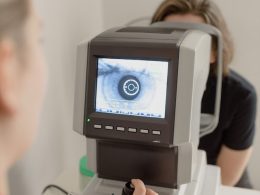The healthcare industry is a vital sector that serves millions of people globally. However, it’s not immune to fraud, and cases of fraudulent activities have been on the rise in recent years. Fraudulent acts are perpetrated by individuals seeking to make money illegally at the expense of Medicare and insurance providers. The effects of such behaviors can be devastating to patients who may receive substandard care or even no care at all. In this blog post, we’ll delve into the ongoing challenge posed by fraud in the healthcare industry and explore ways that insurers and Medicare are fighting back against these illegal practices.
The types of fraud in the healthcare industry
There are many types of fraud that occur in the healthcare industry. Here are some of the most common:
1. Billing for services that were never rendered: This is when a provider bills for services that were never actually provided to the patient. This can be done by submitting false claims to Medicare or private insurers.
2. Upcoding: This is when a provider bills for a more expensive service than the one that was actually provided. For example, a doctor may bill for a higher level of office visit than what was actually performed.
3. Unbundling: This is when a provider bills for multiple services when they could have been billed as a single service. For example, a doctor may bill for an office visit, laboratory tests, and X-rays separately when they could have been billed as one service.
4. False diagnoses: This is when a provider uses false diagnoses to justify unnecessary tests or procedures. For example, a doctor may diagnose a patient with cancer in order to perform unnecessary tests or surgery.
5. kickbacks: This is when providers receive payments from other entities in exchange for referring patients or prescribing certain drugs. Kickbacks can be illegal if they result in overutilization of services or prescription of unnecessary drugs.
The impact of healthcare fraud on Medicare and insurers
Healthcare fraud is a serious problem that has a significant impact on Medicare and insurers. Every year, billions of dollars are lost to healthcare fraud. This fraudulent activity not only wastes scarce resources, but it also drives up the cost of healthcare for everyone.
One of the most common types of healthcare fraud is billing for services that were never rendered. This can happen when providers bill for services that they did not actually provide, or when they bill for more expensive services than the ones that were actually provided. Other types of fraud include kickbacks and self-referrals.
Kickbacks are payments made to providers in exchange for referring patients to a particular facility or provider. Self-referrals occur when a provider refers a patient to a facility or provider in which the provider has a financial interest. Both of these practices increase the cost of healthcare and can result in substandard care.
Fraudulent activity also includes prescription drug fraud. This can involve prescribing unnecessary drugs, prescribing drugs that are not FDA approved, or billing for more drugs than were actually prescribed. Prescription drug fraud drives up the cost of drugs and can put patients’ health at risk.
The best way to combat healthcare fraud is through prevention and detection strategies. Providers should be educated about the types of fraud and abuse, and they should be held accountable for their actions. In addition, payers should implement detection systems to identify and investigate potential fraudulent activity
How to prevent healthcare fraud
It is estimated that healthcare fraud costs the US healthcare system billions of dollars every year. This fraud can take many forms, from billing for services that were never rendered to upcoding (billing for a more expensive service than was actually provided).
There are many ways to prevent healthcare fraud, but some of the most effective include:
-Educating yourself and your staff about the signs of healthcare fraud and what to look for when reviewing claims.
-Implementing strong internal controls to ensure that only authorized personnel have access to patient records and billing information.
-Working with your Medicare or insurance provider to flag any red flags or suspicious activity.
-Reporting any suspected fraud to the proper authorities.
Conclusion
The challenge of fraud in the healthcare industry is an ongoing and dynamic one, requiring organizations like Medicare and insurers to stay up-to-date on the latest trends. By taking a proactive stance and using data analytics tools, these organizations can identify patterns that may be indicative of fraudulent activity and take appropriate measures to address them. In summary, preventing fraud in the healthcare industry requires a multi-faceted approach that includes collaboration between Medicare, insurers, providers, patients, law enforcement officials and health IT professionals. With this level of support from all involved parties working together towards common goals – better patient care quality assurance and financial security – there is hope for reducing fraud in healthcare today.









